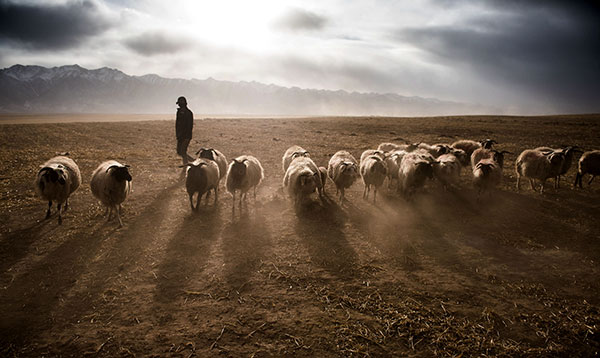New UN supply chain system to slash delays, save lives in large-scale health crises
9 March 2017 – New UN supply chain system to slash delays, save lives in large-scale health crises
In collaboration with partners and as a part of a global supply chain network, the United Nations emergency food relief agency has set about developing the first-ever information platform to better manage supply chains and efficiently match deliveries with demand in responding to large-scale health emergencies such as pandemic outbreaks.
“The creation of this new platform is a prime example of the amazing endeavours that are possible when the public and private sectors work together,” said Ertharin Cousin, Executive Director of the UN World Food Programme (WFP) in a news release announcing the undertaking.
The new system will bring together supply chain and logistics information and enable end-to-end tracking of pandemic response items such as protective clothing and medical equipment within a country facing an outbreak, thereby helping ensure quick and appropriate delivery of supplies to people in need.
It will also provide analysis on supply inefficiencies, promote timeliness and cost efficiency in continuous improvement to the supply chain network.
According to WFP, the system will help overcome challenges witnessed in the response to the West Africa Ebola outbreak, such as severe warehousing and distribution capacity constraints, limited visibility of the overall supply and demand of critical items, access constraints caused by border closures, and a lack of public-private sector coordination.
Furthermore, learning lessons from the Ebola outbreak, the UN as well as Government, academic and private institutions established the Global Pandemic Supply Chain Network and have been working together in unprecedented fashion to develop a framework for improving pandemic preparedness and response.
The partnership also complements other efforts that are underway to strengthen national and international systems that prevent and manage future pandemics.
“In order to achieve any one of the Sustainable Development Goals (SDGs) by 2030, we must all do our part, lending our unique expertise and experiences to innovating solutions to global problems,” added Ms. Cousin, hailing the work being done by the Network.
The end-to-end supply chain information system is being developed in collaboration between WFP and the NEC Corporation, a Japanese multinational provider of information technology services and products. The Japanese Government has provided financial support that will be used as seed funding for the new platform.
